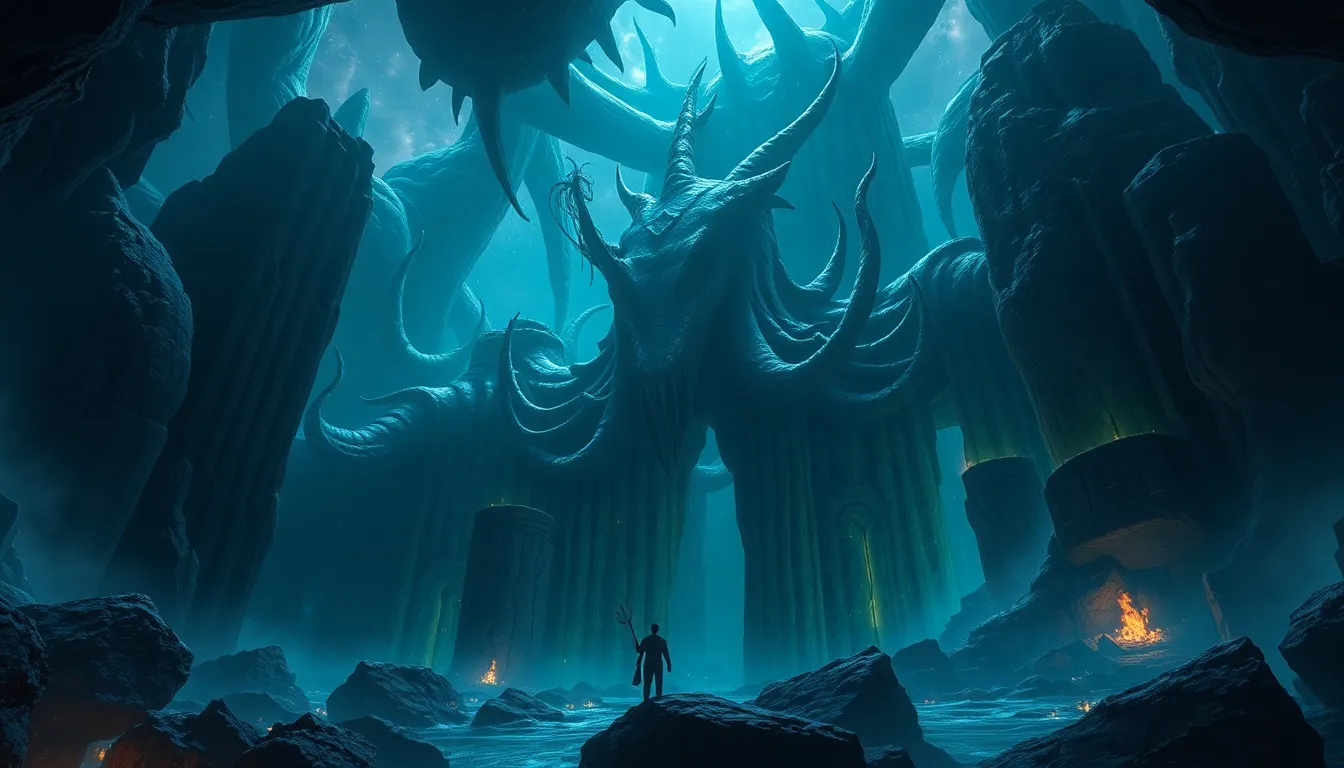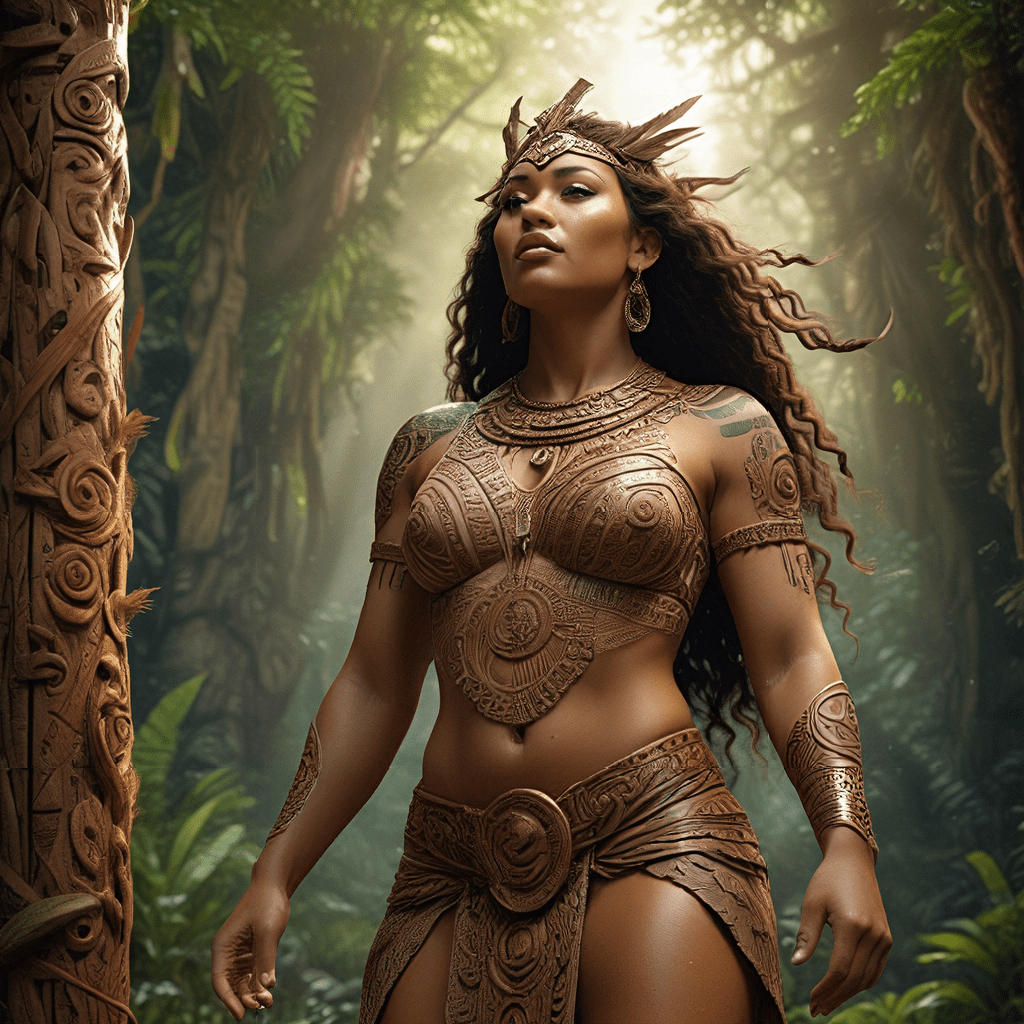The Fascinating Myths of Cultural Heroes in Global Cultures
1. Introduction to Cultural Heroes
Cultural heroes are figures that embody the values, beliefs, and aspirations of a culture. They often emerge from myths, legends, and historical narratives, serving as symbols of what a society holds dear. These heroes play a crucial role in shaping societal values and identity, helping to define what is considered noble, courageous, and virtuous in a given cultural context.
In this article, we will explore the myths surrounding cultural heroes across various global cultures, examining their significance and the lessons they impart. From ancient civilizations to modern-day figures, the narratives of cultural heroes reflect the ever-evolving human experience and the collective conscience of societies.
2. The Role of Myths in Culture
Myths are narrative forms that convey profound truths and cultural norms through storytelling. They serve several essential functions in society:
- Conveying Moral Lessons: Myths often encapsulate moral teachings, guiding individuals on how to navigate ethical dilemmas.
- Preserving Cultural Norms: They reinforce societal values by illustrating acceptable behaviors and practices.
- Explaining Natural Phenomena: Myths provide explanations for natural events and human experiences, making sense of the world.
Moreover, myths often intertwine with historical events, blurring the lines between fact and fiction. They evolve over time, reflecting changes in society while preserving core values.
3. Legendary Heroes of Ancient Civilizations
Ancient civilizations produced numerous legendary heroes whose stories have resonated through time. Figures such as Gilgamesh, Hercules, and Achilles exemplify the ideals of their cultures:
- Gilgamesh: The Sumerian king whose quest for immortality illustrates the human struggle against mortality.
- Hercules: A Greek hero known for his strength and his twelve labors, symbolizing perseverance and courage.
- Achilles: A warrior of the Trojan War whose tale reflects themes of honor, glory, and the tragic nature of heroism.
The significance of these heroes lies in their ability to inspire and teach values central to their respective societies. A comparative analysis reveals that while heroism may manifest differently across cultures, common themes such as bravery, sacrifice, and the quest for knowledge are prevalent.
4. Indigenous Heroes and Their Cultural Significance
Indigenous cultures also have rich traditions of heroic figures, such as Coyote in Native American myths and Anansi in African folklore. These characters often serve as tricksters or wise beings, embodying unique cultural teachings:
- Coyote: A figure of both wisdom and folly, Coyote teaches lessons about resourcefulness, adaptability, and the complexities of life.
- Anansi: The spider trickster in West African folklore, Anansi represents intelligence and cunning, often outsmarting stronger opponents.
These indigenous heroes play a vital role in preserving cultural heritage, imparting wisdom, and fostering a sense of identity among their people. The lessons from these myths often emphasize community, respect for nature, and the importance of storytelling.
5. Modern-Day Cultural Heroes
The transition from ancient to contemporary heroes reflects the changing values of society. Figures such as Nelson Mandela and Malala Yousafzai have emerged as modern-day cultural heroes, representing ideals such as justice, resilience, and the fight for human rights.
Modern media plays a pivotal role in shaping these new hero myths, amplifying their stories through various platforms. This has led to:
- Increased visibility and awareness of contemporary issues.
- The ability to inspire global movements and change.
- The reflection of current societal values, such as equality and freedom.
As modern heroes navigate the complexities of today’s world, they offer new narratives that resonate with younger generations seeking inspiration and guidance.
6. Comparative Analysis of Hero Archetypes
Joseph Campbell’s Hero’s Journey framework provides a lens through which to examine hero archetypes across cultures. Common archetypes include:
- The Reluctant Hero: A character who initially hesitates to take on their quest but ultimately rises to the challenge.
- The Wise Mentor: A sage figure who guides the hero, providing wisdom and support.
- The Tragic Hero: A character whose flaws lead to downfall, often imparting critical lessons about human nature.
Different cultures adapt these archetypes to fit their narratives, showcasing their unique values while embracing universal themes of heroism and personal growth.
7. The Impact of Cultural Heroes on National Identity
Cultural heroes play a significant role in nation-building, often serving as symbols of national pride and unity. Case studies include:
- George Washington: The founding father of the United States, embodying ideals of freedom and leadership.
- Joan of Arc: A French heroine whose bravery and faith became central to French national identity.
These heroes foster patriotism and a sense of belonging among citizens, becoming integral to national narratives and history. Their portrayal in literature, film, and education shapes how societies view their past and aspirations for the future.
8. The Dark Side of Hero Worship
While cultural heroes can inspire, they also present complexities. The phenomenon of hero worship can lead to:
- Oversimplification of their narratives, ignoring flaws and misdeeds.
- The creation of unrealistic expectations for individuals and society.
- Potential disillusionment when heroes fail to meet their elevated status.
Critiques of hero myths highlight the implications of idolizing figures who may not embody the ideals they represent, urging societies to embrace a more nuanced understanding of heroism.
9. The Future of Cultural Heroes in a Globalized World
Globalization is reshaping cultural narratives, leading to the blending of myths and the emergence of new heroes. As cultures interact, we see:
- The cross-pollination of ideas and stories.
- The rise of global figures who resonate across borders, such as environmental activists and social justice leaders.
- The influence of technology and social media in disseminating hero myths, allowing for diverse voices to be heard.
As we progress into an interconnected world, the concept of cultural heroes will continue to evolve, reflecting shared human experiences and aspirations for a better future.




